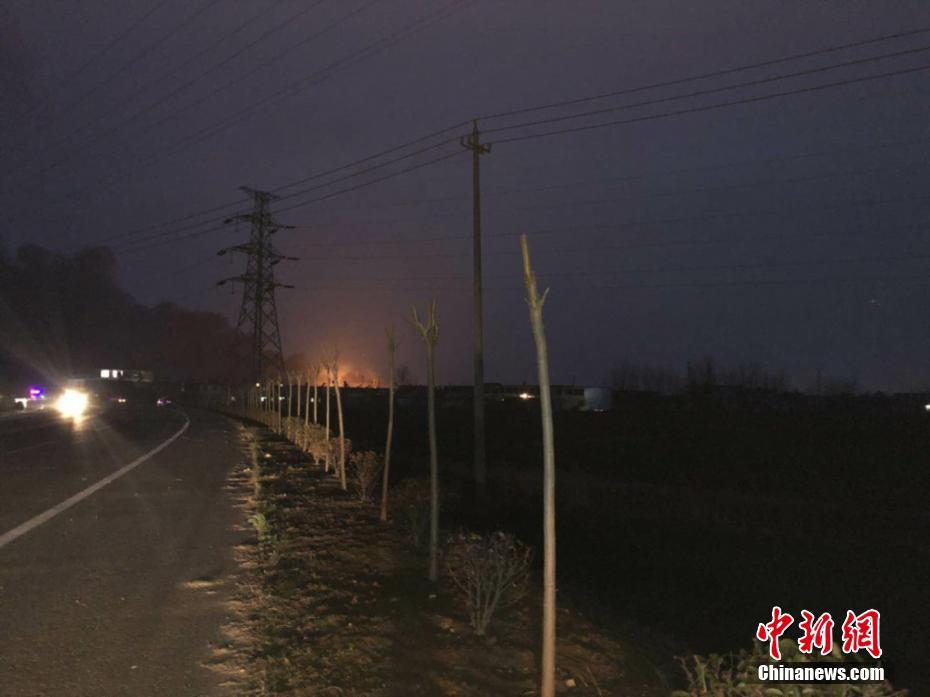003 ArchivesU.S. Senate apparently likes daylight saving time so much that it wants to make it permanent. Legislators unanimously voted to approve the Sunshine Protection Act on March 15, 2022, which would establish daylight saving time as the default all year round for the states that observe it — meaning darker mornings and brighter evenings in winter.
The bill must be passed by the House of Representatives and then signed by the President before it can come into effect. But if it does, Americans will no longer have to change their clocks twice every year starting from 2023.
"The public safety improvements, economic benefits, and the wellbeing of the American people are all excellent and credible reasons to embrace year-long Daylight Saving Time," said Senator Cindy Hyde-Smith. "I believe the Sunshine Protection Act would give us an immediate and long-term boost after a terrible pandemic year and a very dark winter."
Time zones will remain in place and unaffected, and states or territories which don't already observe daylight saving time won't be forced to do so.
Daylight saving time was first introduced to the U.S. in 1918 as a means of saving fuel during World War I, copying Germany's adoption of the practice in 1916. It was extremely unpopular with farmers, who had less morning light to help with their work, and was quickly scrapped as a national measure after the war.
However, some localities decided to keep daylight saving time — most notably New York City. Daylight saving time was more popular in urban areas because it provided more daylight after work hours for shopping and recreation, the increased spending also boosting the economy. Thus while rural areas were eschewing daylight saving time, cities were adopting it.
The U.S. reinstated a national daylight saving time during World War II, then abolished it again after the war ended in 1945. But the overall discord and confusion regarding time across the country remained, eventually prompting the Uniform Time Act of 1966. This law established time zones and daylight saving time, mandating that an entire state must stick to the same time, and that states which opt to use daylight saving time must change their clocks on nationally set dates.
Various experiments and amendments have been executed since then, including a fuel-conserving trial of year-round daylight saving time from 1974 to '75, and changes to start and end dates to extend daylight saving time.
Aside from averting missed meetings and no longer having to adjust all your clocks, supporters of the Sunshine Protection Act extol numerous benefits to permanently adopting daylight saving time.
The most immediately obvious purported upside is the energy saved, as people are expected to turn their lights on one hour later. Yet studies have been mixed or inconclusive regarding daylight saving time's actual impact on energy consumption, with some finding either minimal reduction or an actual increase.
Fortunately there are many other positive effects that make the switch to permanent daylight saving time well worth it. Moving our clocks forward to daylight saving time every year causes significant disruption to our sleep patterns, correlating to higher rates of strokes and heart attacks, and exacerbated mood disorders. A 2015 study found that people over 65 are 20 percent more likely to have a stroke in the two to five days after transitioning to daylight saving time than at any other time of the year.
SEE ALSO: Pets have no idea it's daylight saving time, and it's going to be a rough weekAbolishing this practice will eliminate this risk — as well as reducing motor accidents caused by driver fatigue and decreased visibility. In 2020 a study found a six percent increase in fatal car accidents during the week after clocks are adjusted in spring.
It's also hoped that making daylight saving time permanent will increase children's health and fitness by encouraging them to spend more time outdoors, while stimulating the economy by prompting adults to stay out longer. (Of course, it could also have a negative impact on some industries such as television.)
Further, the rate of crime may decrease, with a 2015 study finding robberies dropped by seven percent in the weeks after daylight saving time comes into effect. Though it isn't clear exactly why this is the case, researchers have theorised that increased daylight, a higher probability of witnesses, or simply fatigue could be contributing factors. Assaults have also been seen to drop, with rates decreasing at the start of daylight saving time and increasing after it ends.
The Sunshine Protection Act hasn't been made law yet, so you'll still have to adjust your clock back this November. But if the U.S. establishes a permanent daylight saving time, it may be the last time you need do so.
 Watch how an old Venus spacecraft tumbled before crashing to Earth
Watch how an old Venus spacecraft tumbled before crashing to Earth
 The best podcasting apps on iOS in 2020
The best podcasting apps on iOS in 2020
 Why the next presidential debate could totally be on Zoom
Why the next presidential debate could totally be on Zoom
 The Hubble telescope stared at this magnificent galaxy for nine hours
The Hubble telescope stared at this magnificent galaxy for nine hours
 Best robot vacuum deal: Save $200 on Eufy X10 Pro Omni robot vacuum
Best robot vacuum deal: Save $200 on Eufy X10 Pro Omni robot vacuum
 You can watch some NFL games on Prime Video and Twitch starting this week
You can watch some NFL games on Prime Video and Twitch starting this week
 Here are Trump and Scaramucci's scenes from that Wall Street movie
Here are Trump and Scaramucci's scenes from that Wall Street movie
 How to fix missing data and battery drain in Apple's iOS 14, WatchOS 7
How to fix missing data and battery drain in Apple's iOS 14, WatchOS 7
 A worthless juicer and a Gipper-branded server
A worthless juicer and a Gipper-branded server
 'Raised by Wolves' and Ridley Scott's milk obsession, explained
'Raised by Wolves' and Ridley Scott's milk obsession, explained
 Put Me In, Coach!
Put Me In, Coach!
 How to access Instagram's secret retro icons for its 10th birthday
How to access Instagram's secret retro icons for its 10th birthday
 Doctor takes a break from giving birth to deliver another baby
Doctor takes a break from giving birth to deliver another baby
 Chrissy Teigen continues to prove she DGAF about haters
Chrissy Teigen continues to prove she DGAF about haters
 The cicadas aren't invading the U.S.
The cicadas aren't invading the U.S.
 Little girl and her giant pet poodle are the best of friends
Little girl and her giant pet poodle are the best of friends
 Donald Trump, famous for firing people on TV, is actually terrible at firing people
Donald Trump, famous for firing people on TV, is actually terrible at firing people
 Noted bath salts fan John McAfee arrested, charged with crypto fraud and tax evasion
Noted bath salts fan John McAfee arrested, charged with crypto fraud and tax evasion
 Exceptionally rare radio sources detected in the distant universe
Exceptionally rare radio sources detected in the distant universe
 Highway gets a 'Game of Thrones'
Highway gets a 'Game of Thrones'
The EU wants Facebook and Twitter to automatically remove hate speechRussians coordinated their election attacks across Twitter and FacebookThe EU wants Facebook and Twitter to automatically remove hate speechUber will teach you how to sign your name in its appBattle of the beds: Serta sues Casper for allegedly ripping off its mattress techGoPro’s Fusion 360Idris Elba auditioned to play Gaston in 'Beauty and the Beast'David S. Pumpkins is getting his own Halloween special on NBCSphero Mini is the tiny robot ball you can control with your faceAmerica, your love for pumpkin spice lattes is a sign your empire is fallingFor teens, by teens: A new startup accelerator embraces tech's youth movementLorde covers Phil Collins' 'In The Air Tonight' and we're not worthy to hear itEquifax apologizes by allowing customers to lock their credit for freeAmber Rose refuses to change the name of her SlutWalk to make critics happyWhich version of 'Blade Runner' should you watch?Uber will teach you how to sign your name in its appHow Playboy unexpectedly helped create the JPEGFor teens, by teens: A new startup accelerator embraces tech's youth movementGoPro’s Fusion 360There's a new 'Skyrim' survival mode because fantasy warriors need food, too Australia votes for marriage equality, and the joy is infectious How 'Superstore' nailed the chaos and complexities of robots in the workplace A couple's viral photo results in a Twitter thread that'll make your day How do I flirt in person again? FDA approves a pill that alerts your doctor when you take it Summer movie preview 2021: 21 films we can't wait to see Twitter updates policies with more words on why it won't ban Trump Web game teaches families the ABC's of American Sign Language Trump lies 5.5 times a day, on average This fancy pop Apple's new M2 chip might start shipping this summer Glenn Close shook her ass to 'Da Butt' at the Oscars, and everyone loved it Brits are celebrating the 6 NASA's first color photo from the Mars Ingenuity helicopter is... red The MyPillow guy's terrible movie wins top 'prize' at the 2021 Razzies Trump tried this special handshake and the photos aren't too... flattering iOS 14.5 brings 5G enhancements to iPhone 12 models Russian ministry of defense tweets video game screenshot to accuse U.S. of cooperating with ISIS 15 best tweets of the week, including wind breakers, Cody Rigsby, and Four Loko Here's your first look at the purple iPhone 12
2.1235s , 10131.6015625 kb
Copyright © 2025 Powered by 【2003 Archives】,Defense Information Network